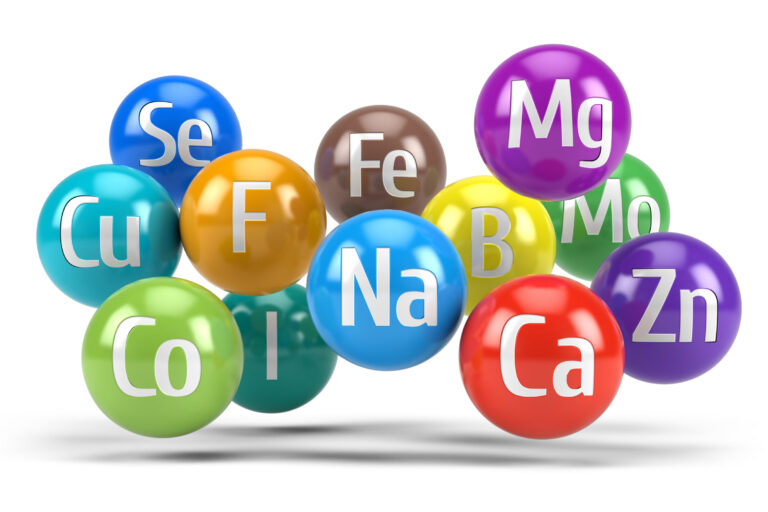THE RELATIONSHIP OF THE SYSTEM
AND ITS IMPORTANCE
Minerals are identified as vital nutrients that are required in the body to regulate a number of functions such as building and strengthening our bones, improving muscle and nerve function, they are components of hormones and regulate the water balance in the body. In this group we can find elements such as zinc, copper, calcium, phosphorus, magnesium, sodium, potassium and iron, among others. It is very important to have a good diet since our body is not capable of synthesizing these nutrients; so diet is the only way to get them.
In addition to the above activities, minerals play a key role in the functioning of the immune system. Consequently, these can influence susceptibility to infections, but also have an effect on the development of chronic diseases.
MAGNESIUM
It has a vital role in regulating chemical reactions in our body and signals between cells. This mineral influences the development of cells known as “lymphocytes” which in some cases generate the necessary antibodies to defend our body, it is also essential for cells that have completed their lifespan or are damaged to carry out a process known as “apoptosis” avoiding negative consequences for our body, there are also scientific studies that show how magnesium deficiency is associated with chronic inflammation.
IRON
It is an essential mineral for vital human functions, despite its importance iron deficiency anemia is the most common nutrient disorder in the world and affects approximately 25% of the world population. This deficiency can cause our immune system to weaken as it affects the proliferation of leukocytes (commonly called white blood cells) and the antibody response.
ZINC
It fulfills fundamental tasks in our body, of which we can highlight its role as an antioxidant, helping to regulate the “free radicals” that cells sometimes have to produce to attack invading microorganisms. On the other hand, Zinc has a great influence to activate T cells of the immune system through the receptor of this cell, in addition, Zinc deficiency can result in a reduced maturation of B cells, this can cause a decrease of antibody production.
COPPER
Copper is necessary in small amounts in our body to carry out many physiological processes. A good balance of copper in our body allows us to be immunologically competent, scientific studies have shown that copper deficiency causes a reduction of the thymus and enlargement of the spleen, in addition to the fact that the levels of cells of the immune system are reduced. Therefore, enrichment of plasma Cu levels could enhance both innate and adaptive immunity in humans.
Author: Q.B.C. José Eduardo Martínez Martínez
Bibliography
Weyh, C., Krüger, K., Peeling, P. y Castell, L. (2022). El papel de los minerales en el funcionamiento óptimo del sistema inmunológico. Nutrientes , 14 (3), 644. https://doi.org/10.3390/nu14030644






